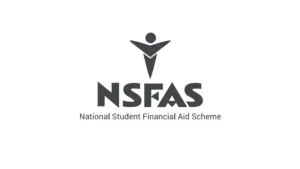Applying for Unemployment Insurance Fund (UIF) benefits can be a lifeline for many South Africans during times of financial hardship. However, the application process can be daunting, especially for those who are unfamiliar with the procedures. To ensure a smooth application, it is crucial to avoid some common mistakes that could lead to delays or rejection of your claim.
By understanding these pitfalls and following the correct steps, applicants can maximize their chances of successfully receiving UIF benefits.
1. Failing to Gather the Necessary Documentation
One of the most common mistakes when applying for UIF benefits is submitting incomplete or incorrect documentation. The UIF application process requires specific forms and supporting documents to be completed accurately. Applicants must provide:
- A completed UI-19 form from the employer.
- A valid identification document (ID).
- Proof of employment termination, such as a retrenchment or dismissal letter.
- Bank confirmation letter or stamped bank statement.
When these documents are missing or incorrectly completed, it often results in significant delays. Ensuring that all documents are prepared and verified before submission can save time and frustration.
2. Not Understanding Eligibility Criteria
Another major mistake is not fully understanding the eligibility criteria for UIF benefits. Some applicants assume that they automatically qualify simply because they have contributed to UIF. However, specific conditions must be met, depending on the type of claim being submitted:
- Unemployment Benefits: You must have been retrenched, dismissed, or your contract ended.
- Illness Benefits: You need to prove that you are unable to work due to medical reasons.
- Maternity Benefits: Female employees are entitled to claim UIF when on maternity leave.
- Dependent Benefits: These can be claimed by dependents of a deceased contributor.
By familiarizing themselves with these criteria, applicants can determine whether they qualify for UIF benefits and avoid unnecessary rejections.
3. Submitting Late Applications
Timing is crucial when applying for UIF benefits. Many applicants fail to meet the deadlines for submitting their claims, resulting in disqualification. The Department of Employment and Labour requires that applications for unemployment benefits be submitted within six months of the last day of employment. For maternity and illness benefits, the claim must be filed within a similar timeframe.
Submitting late applications often stems from a lack of awareness or procrastination. To avoid this, applicants should prioritize filing their UIF claims as soon as possible after their employment circumstances change.
4. Incorrectly Completing Application Forms
Errors in application forms are a frequent cause of delayed UIF payouts. Applicants often make mistakes such as:
- Providing incorrect ID numbers or contact details.
- Filling in outdated forms instead of the latest versions available on the UIF website.
- Forgetting to sign or date the forms.
Check also: How to Change Your UIF Bank Details on uFiling: Step-by-Step Guide
Accuracy is vital when completing UIF application forms. Reviewing the forms multiple times and seeking assistance from the Department of Employment and Labour or trusted sources can help minimize errors.
5. Not Keeping Copies of Submitted Documents
Many applicants overlook the importance of keeping copies of the documents they submit. If documents are misplaced or additional copies are required during the process, not having duplicates can lead to unnecessary delays. By keeping a personal record of all submitted forms and correspondence, applicants can quickly provide proof of their submission if needed.
6. Ignoring UIF Contribution Requirements
UIF contributions are mandatory for most employed individuals, and both employers and employees are responsible for these payments. However, some applicants fail to verify whether their employer has been making regular UIF contributions on their behalf. If contributions are not up-to-date, the claim may be delayed or denied.
Applicants should regularly check their UIF contribution status by contacting the Department of Employment and Labour or accessing their records online. Employers are legally obligated to ensure compliance, but it is also the employee’s responsibility to stay informed.
7. Providing Incorrect Banking Details
Providing incorrect or outdated banking details is another common mistake when applying for UIF benefits. Applicants may inadvertently supply the wrong account number or use a bank account that is no longer active. This can result in failed payments or the need to resubmit banking information.
To avoid this issue, applicants should double-check their banking details and ensure that the provided account is active and registered in their name.
8. Overlooking Follow-Up Procedures
Many people submit their UIF application and assume that the process is complete. However, follow-up is an essential step to ensure the application is processed successfully. Applicants should regularly check the status of their claim through the UIF helpline, the Department of Employment and Labour offices, or the online UIF portal.
Failure to follow up can result in missed updates or notifications about missing documents, delaying the payout further. Staying proactive and checking on the progress of the application is critical.
9. Relying Solely on Third Parties
While it is sometimes helpful to seek assistance from third-party agents when applying for UIF benefits, relying solely on them can lead to complications. Some agents may charge fees for their services or provide inaccurate information.
The Department of Employment and Labour offers free support to UIF applicants. By engaging directly with official channels, applicants can avoid unnecessary costs and ensure their applications are processed correctly.
10. Not Seeking Clarification When Confused
Many applicants are hesitant to ask questions when they encounter confusion during the UIF application process. This often leads to incorrect submissions or overlooked steps. It is essential to seek clarification from UIF officials or trusted resources whenever there is uncertainty.
The Department of Employment and Labour provides a range of support options, including in-person consultations, a helpline, and online resources. Taking advantage of these services can make the application process less intimidating.
Read also: Common Mistakes to Avoid When Claiming UIF Benefits
Applying for UIF benefits may seem overwhelming, but by avoiding common mistakes, applicants can simplify the process and ensure timely payouts. Preparing the correct documentation, understanding eligibility criteria, submitting on time, and staying proactive throughout the application process are all key to success.
It is important to remember that UIF benefits are designed to support individuals during challenging times. By following the correct procedures and avoiding these common errors, applicants can access the financial assistance they need with minimal hassle.










